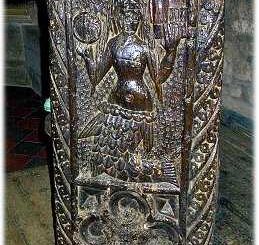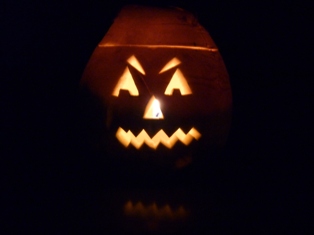Stokesley
The Wise man of a stokesley a man called Wrightson is reputed to have been a great seer and healer. The 7th son of a 7th daughter he was especially famed for healing cattle and his far sight. He died in the 1900s. Many villages had such wise men and women famed for their powers.




According to ‘Buildings of
According to ‘Buildings of Stokesley published by the Stokesley Society, John Wrightson, Stokesley’s Wise Man, probably came to the town at the end of the eighteenth century. At one point 30 High Street belonged to Wrightson and later that building became associeted with printing, stationery and newspapers.
‘His advice was sought for a wide range of problems by the public. Many are the stories of his miraculous cures, particularly of sick animals’.
Re: Stokesley
The following account of the story is extracted from ‘Legends Superstitions of the County of Durham’ by William Brockie (1886).
When the Wise Man of Stokesley shuffled off this mortal coil, one William Dawson, who rented a farm at Quaker’s Grove, near the same place, and who inherited some of the wizard’s books, took up the trade of soothsaying. Like his predecessor, he soon got in great repute and was even consulted by persons of a respectable position in life. But his powers, such as they were, failed to help him to fortune, or even to sustain him in his original independence. For he gradually sank into poverty, and ended his days in South Durham in very reduced circumstances. Mr. Henderson, in his excellent ”Folk Lore of the Northern Counties" gives the following instances of his mode of treatment: ‘A substantial Yorkshire farmer, having sustained heavy and continued losses among the stock, consulted this William Dawson, and was instructed by him how to find out whether witchcraft was really the cause of the mischief. The farmer was to take six knots of bottree (bore-tree or elder) wood, and placing them in orderly arrangement beneath a new ashen bowl or platter, was so to leave them. If, on looking at them some little time afterwards, they were found all in confusion, "all squandered about," as he phrased it, there could be no doubt the beasts were perishing from the effects of witchcraft. This was done, and on inspection the knots were found in utter confusion. So the farmer was directed to take the heart of one of the dead beasts, and stick in it nine new nails, nine new pins, and as many new needles. The heart thus prepared was to be burnt on a fire made and fed with witch-wood (rowan tree), a little before midnight, at which hour a certain verse of the Bible was to be read over the flames and the spell would be broken. All was made ready and the doors of the farm-house secured with bolts and bars, to say nothing of chairs and tables heaped against them for additional security. The heart lay on the mystic fire; as midnight approached, the operator touched it with the poker, and it burst asunder into many pieces.
Gathering them together upon the hot embers, that they might be thoroughly consumed, he read the appointed verse, and at the same moment a rushing and clattering was heard down the paved causey which led from the house to the turnpike (the high-road) in front, as if a carriage and pair came driven down it furiously. Next began a terrible knocking and hammering, first at the front door, then at the back ; but as the embers of the heart wasted in the fire, as the last spark disappeared, the noise ceased; and from that time no further harm befell the stock.’ On another occasion the object was ‘to restore to health a young man said to be bewitched. A fire was made at midnight as before, and the doors and windows closed. Clippings from every finger and toe nail of the patient, with hair from each temple, and the crown of his head, were stuffed into the throat of a pigeon which had previously been placed between the patient’s feet, and there had died at once, thus attesting the witchery from which he was suffering. The bird’s bill was riveted with three pins, and then the wise man thrust a pin into its breast, to reach the heart, everybody else in the room in turn following his example. An opening was then made in the fire, and the pigeon dropped into it. The wise man began to read aloud Psalms from the Prayer Book, and a loud scratching and whining began outside. All in the house, said Mr. H.’s informant, were satisfied that the young mans enemy had appeared outside, perhaps in the form of a dog; he alone attributed the sounds to the wizard’s own dog, which had not been allowed to enter the house.
His scepticism, however, annoyed the wizard and his dupes so much that the lad was fain to keep it to himself.